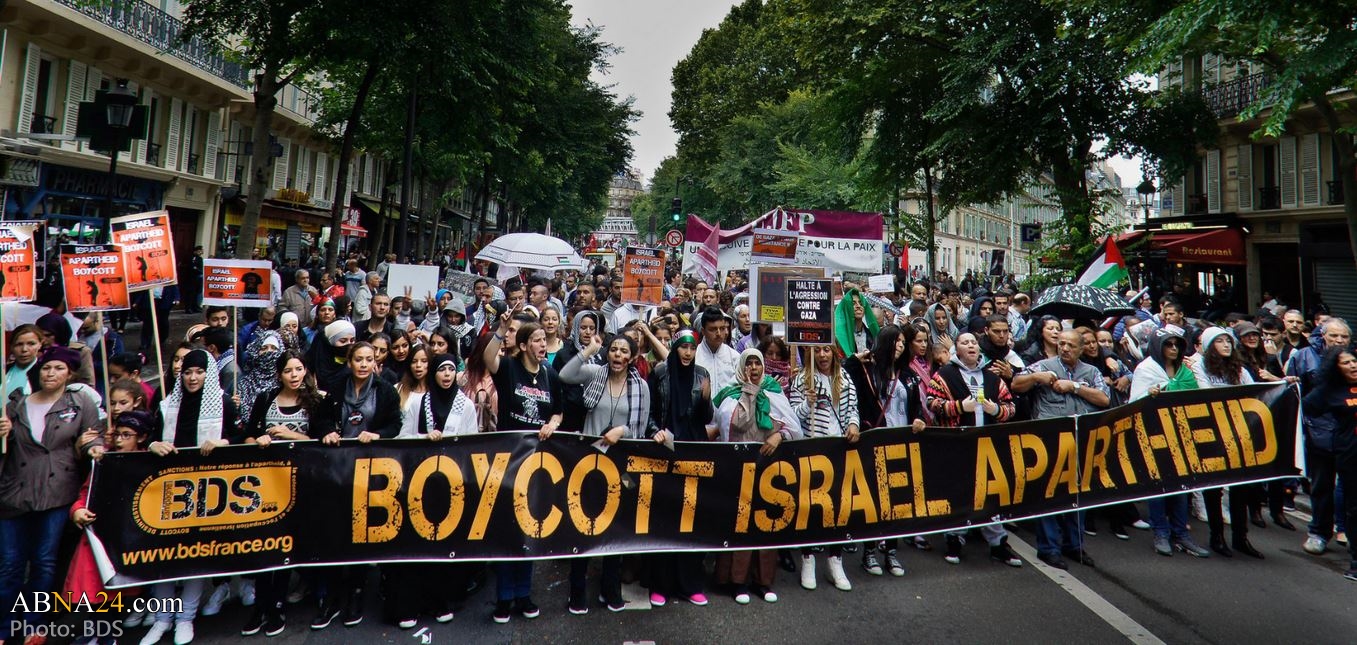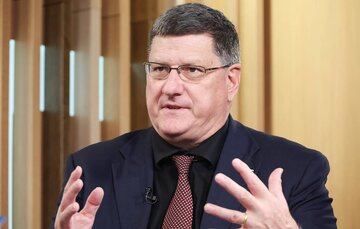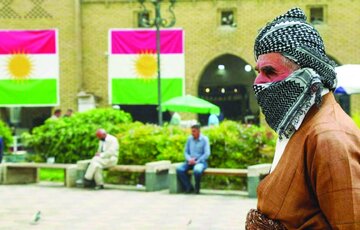AhlulBayt News Agency (ABNA): On November 25th, after a struggle with cancer, passionate writer and activist Samah Idris passed away. Idris dedicated his life to Palestine and the struggle against normalization with the occupation. He was editor-in-chief of the prominent Al Adab literary magazine from 1992 onward.
Idris was one of the founders of the Campaign to Boycott Supporters of "Israel" in Lebanon after the Jenin massacre in 2002, and played a leading role in furthering the movement's influence.
He had a strong commitment to Palestine and its cause, which he used as a compass in his battle.
He said, "Lebanon condemns the Israeli occupation which violates universal principles and the right of people to self-governance."
Even in his final days before his untimely death, Idris continued to denounce those who normalize ties with the occupation as he fought to expose the occupations' atrocities.
The revolutionary's death comes amid a shameful recent normalization wave by several Arab countries with "Israel," the newest of which is the visit of the occupations' Security Minister Benny Gantz to Morocco.
The visit witnessed the signing of a memorandum of understanding on security cooperation between the two sides, deeming the Moroccan regime as a partner in oppressing Palestinians and betraying the Palestinian cause, and ignoring the history of Moroccan revolutionaries and resistance leaders such as Abdelkarim al-Khattabi who fought against Spanish and French colonialism.
Morocco is the fourth Arab country, following the UAE, Bahrain, and Sudan, to have normalized ties with the Israeli occupation under Washington's sponsorship.
Originally, in 1945, the Arab League issued a decree to officially boycott Israeli companies and goods in support of Palestine, forcing Arab citizens and companies of an Arab League member to boycott any ties with "Israel."
Unsurprisingly, the US Congress passed laws in 1977 criminalizing US companies that comply with the Arab boycotting bodies.
However, as a result of Western pressure, several Arab countries have abandoned the boycotting movement and normalized ties with the Israeli occupation.
Therefore, the more the normalization ties increase, the more the work of the BDS movement becomes crucial.
Sally Rooney under attack
A few days ago, some 70 prominent authors, poets, and playwrights have signed a letter of endorsement in support of Irish author Sally Rooney's decision to prevent Israeli publishing house "Modan" from translating her latest work, "Beautiful World, Where Are You," into Hebrew.
Rooney indicated that her decision is part of a cultural boycott over Israel's treatment of Palestinians.
She said she "did not feel it would be right" to accept a contract with an Israeli company "that does not publicly distance itself from the apartheid and support the UN-stipulated rights of the Palestinian people."
Citing human rights reports, Rooney pointed out that "Israel's system of racial domination and segregation against Palestinians meets the definition of apartheid under international law."
The author confirmed she supports the "Boycott, Divestments and Sanctions (BDS)" movement targeting "complicit" firms and institutions "in response to the apartheid system and other grave human rights violations."
Rooney explained that the BDS movement is "modeled on the economic and cultural boycott that helped to end apartheid in South Africa."
Boycotting origins in Palestine
Since the 1920s, Palestinians have mastered boycotting as a way of resisting the British mandate and the Zionist colonization, and in 1936, they organized a huge six-month strike in protest of the British support for Zionism.
In addition, the Resistance factions launched a popular boycott of Israeli products during the first Intifada (1987-1992), which led to a dynamic plunge in Israeli exports.
When all UN resolutions failed to stop "Israel" from violating international laws and continuing its crimes against Palestinian people and land, 170 different Palestinian bodies first launched the BDS movement in 2005.
The BDS movement website wrote, "Inspired by the South African anti-apartheid movement, the BDS call urges action to pressure 'Israel' to comply with international law."
In an aim to withdraw apartheid in South Africa, several activists, organizations, unions, and politicians pressured the apartheid South African regime through heavy lobbying, isolation, and product boycotting worldwide as a form of achieving liberation. The boycott movement cost the racist regime a great loss and isolation from international events and markets by the demand of many Europeans.
As a result, post-apartheid South Africa has supported the Palestinian cause since the two sides established formal diplomatic relations in 1995, a year after the end of the apartheid regime. South Africa also reduced its diplomatic representation in the so-called "Tel Aviv" in 2019 and withdrew its ambassador.
It is noteworthy that the boycotting movement has been historically used to end oppression, such as Ghandi's Indian Salt March in 1930 and African Americans' famous Montgomery Bus Boycott in late 1955. Unlike BDS, these movements are celebrated without being described as "anti-Semitic."
Its success and effect
"BDS aims to end international support for Israeli violations of international law by forcing companies, institutions, and governments to change their policies. As Israeli companies and institutions become isolated, 'Israel' will find it more difficult to oppress Palestinians," explains the BDS movement.
So far, BDS has achieved several victories against the Israeli occupation on many levels, which led "Israel" to dedicate resources, including money, government staff, and security services to undermine BDS and threaten its activists.
Culturally, thousands of artists, famous of which is Pink Floyd's Roger Waters from legendary rock band Pink Floyd, have declined to perform in "Israel" as a result of BDS calls and is even an ardent supporter of the movement.
In addition, various academic institutions and unions in the US, Canada, South Africa, and the UK have announced their support for Palestine and the movement.
After respecting the choice of boycotting, renowned British scientist Stephen Hawking withdrew from the Israeli Presidential Conference. Also, after a visit to Palestine, the famous Black activist and academic, Angela Davis, expressed that she "unequivocally endorses the Boycott, Divestment, and Sanctions Campaign."
Most recently, the South African government announced that it has "withdrawn its support" from the current Miss South Africa (SA) pageant due to fruitless attempts to persuade the pageant to reconsider its plan to participate in the Miss Universe event, which is set to take place in "Israel."
Economically, a UN report showed that BDS was a major cause of a 46% drop in foreign direct investment in "Israel" in 2014, while the world bank mentioned that the movement resulted in a 24% drop in Palestinian imports from the occupied lands, according to the movement. Moreover, the Israeli occupation government and the Rand Corporation published reports that predict that BDS will cost "Israel" billions of dollars, which it did.
How "Israel" is fighting BDS
Proving to be effective, "Israel's" policies against BDS and pressure on EU and US have proven the efficiency of the movement and the extent of loss it has caused to the occupation.
The Zionist lobby worldwide and pro-"Israel" groups have urged governments such as France, Canada, the US, UK to criminalize BDS.
Last but not least, it is important to mention that the BDS movement is one form of resistance out of many against the Israeli occupation, amid the shameful wave of normalization with the Israeli occupation and the Arab failure to support the Palestinian cause in favor of the US and "Israel."
However, boycotting is not and should not be an alternative to armed resistance as the late Samah Idriss affirmed, "We believe there is no other way to communicate with the Israeli occupation except through boycotting and armed resistance, and nothing else."
Idris is no longer with us, but his memory will live in the hearts and minds of all the supporters of the Palestinian cause.
/129
7 December 2021 - 05:45
News ID: 1206031

Amid the shameful wave of normalization with the Israeli occupation and the Arab failure to support the Palestinian cause in favor of the US and "Israel," the Boycott, Divestments and Sanctions movement has proven to be effective.




